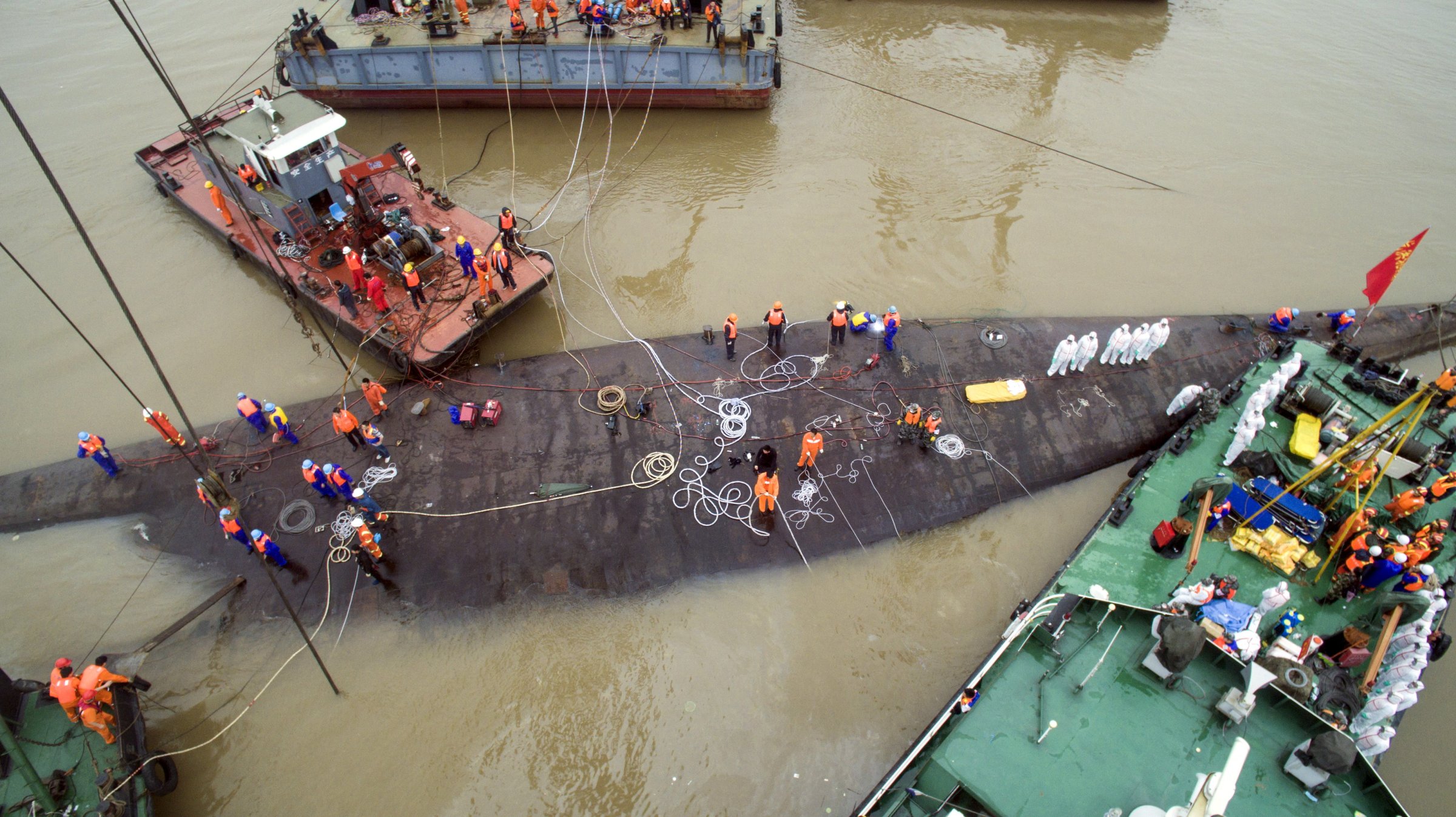
If, in the early hours, there was any small affirmation in tragedy, it was this: the squadrons of scuba divers, the implacable cranes, the search-and-rescue teams prying open a ship’s hull were striving ceaselessly to rescue victims of the June 1 cruise ship disaster on the Yangtze River. Few could argue against the efficiency of a one-party state. Amid driving rain and wind, China’s Premier Li Keqiang rushed to the scene, his shirt-sleeves rolled up, the conductor of a sorrowful symphony for the sunken Eastern Star.
Yet, four days on, we are left not in awe of the galvanizing power of autocracy but with aversion to its inelegance. So determined has Beijing been to stage-manage the wake of the storm capsizing — as of the morning of June 5, the confirmed death toll stood at 97, with 14 survivors and hopes rapidly fading for the remainder of the more than 450 passengers and crew — that they have turned a potential PR boon for the Chinese Communist Party into an embarrassment.
Family members of the ferry victims, who have converged on the town of Jianli in China’s central Hubei province, have been warned not to talk to the media. Some have been followed by security personnel, as if their loss somehow makes them suspect. Reuters reported that other relatives in Shanghai, where the tour agency that filled the ship is based, were physically assaulted by uniformed Chinese police.
Many have complained about a lack of information from government sources. Censors are scouring the Internet, even targeting the words “Eastern Star.” Members of the Chinese media have been hushed. Why? “I can’t rule out that even among Chinese journalists there are people who want to smear the government,” Hu Shining, the deputy police chief of Nanjing, the city where the ship embarked on its journey, told family members, according to Reuters.
On June 4, China’s President Xi Jinping convened a special meeting of the nation’s most powerful leadership committee to discuss the tragedy. A statement from the meeting, reported by China’s state news agency Xinhua, called on “local party committees and governments to ‘sincerely understand the families’ grief, carry out appeasement efforts and earnestly safeguard social stability.’”
But grief is messy. It is not “coordinated, scientific and pertinent,” as Premier Li described the equipment being used for the Jianli rescue effort. The families of those lost on the Eastern Star, most of whom were elderly, were not looking to disturb social stability. But now that their bereavement is being treated like criminal activity, how will they proceed?
Other disasters have made unlikely dissidents out of ordinary Chinese. When parents and others protested the shoddy construction of schools that collapsed during the 2008 Sichuan earthquake, some were jailed for their troubles. When families of New Year’s Eve revelers, who were trampled to death in Shanghai this past holiday, tried to commemorate their loved ones, police and censors converged. Back then, Chinese media were instructed to stick to state-sanctioned versions of events, a pattern that is being repeated with the Eastern Star sinking.
That has prompted some ferry relatives to speak anonymously to the press or to merely identify themselves by their last name. Yet again, personal tragedy was left submerged under the weight of preserving social stability.
More Must-Reads from TIME
- Donald Trump Is TIME's 2024 Person of the Year
- Why We Chose Trump as Person of the Year
- Is Intermittent Fasting Good or Bad for You?
- The 100 Must-Read Books of 2024
- The 20 Best Christmas TV Episodes
- Column: If Optimism Feels Ridiculous Now, Try Hope
- The Future of Climate Action Is Trade Policy
- Merle Bombardieri Is Helping People Make the Baby Decision
Contact us at letters@time.com